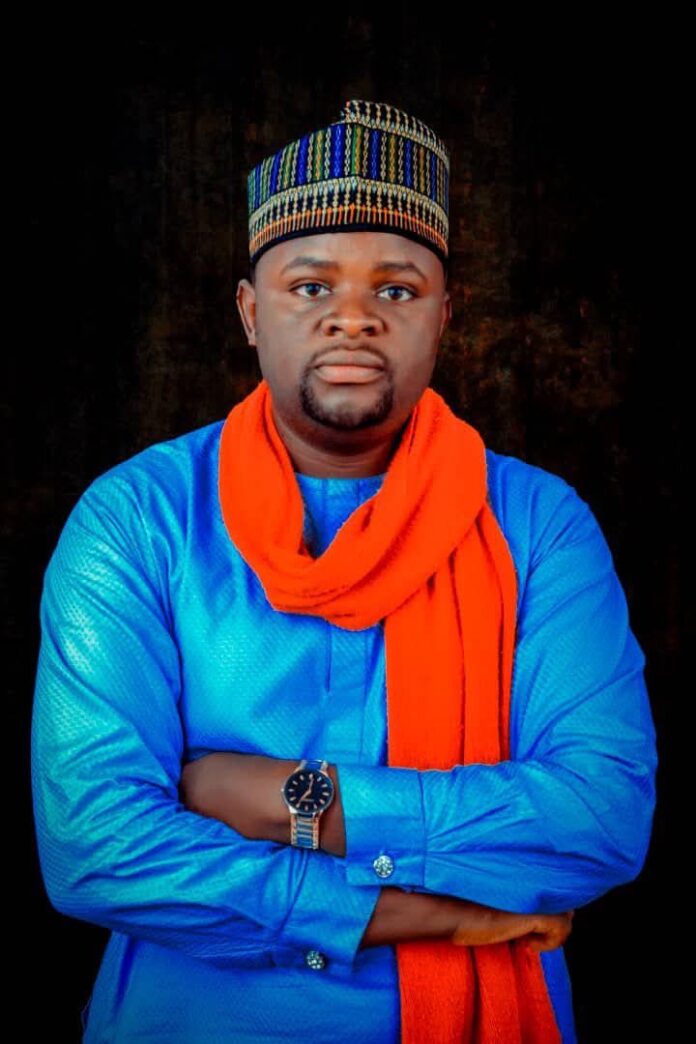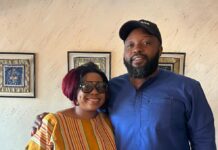I’m greatly motivated to redefine Yobe’s cultural heritage – Focal person on culture and monuments, Yahuza Rabi’u Garba
Story by Kasim Isa Muhammad
Yahuza Rabi’u Garba is a historian and culture curator with years of experience working in museums and cultural institutions across Nigeria. He was recently appointed by the Yobe State government as the Focal Person on Culture and Monuments, a role that brings him back home to lead efforts in preserving and promoting the state’s rich heritage. In this exclusive interview, he speaks about what the appointment means to him, his vision for cultural development in Yobe, and his plans to safeguard monuments and traditions for future generations.
Neptune Prime: Congratulations on your appointment, what does this role mean to you personally and professionally?
Yahuza: This appointment personally means a homecoming to me in so many ways because I have spent a considerable part of my professional life working outside Yobe State, engaging in museum and cultural heritage practices across the country. My experiences have largely been concentrated in places like Ile-Ife, where the rich Yoruba cultural background provides so many opportunities for heritage studies, and in Lagos, where the museums are not only important but also serve as a meeting point for scholars, researchers, and culture enthusiasts from all over the world. Having knowledge in those settings, it is a pleasure and a privilege to finally come back home to serve my own people. Professionally, this role gives me the opportunity to channel all the years of training, exposure, and practical work I have gathered into a responsibility that is closer to my heart, because culture and monuments in Yobe represent my background. It feels both rewarding and challenging because I am not just applying knowledge I acquired elsewhere but also reconnecting with the cultural heritage that shaped me from childhood.
Neptune Prime: Can you tell us about your background and how it has prepared you for this responsibility?
Yahuza: My academic and professional background have been major pillars in preparing me for this responsibility. I hold both a degree and a master’s degree in history, which gave me the academic foundation and theoretical grounding to understand heritage, culture, and the historical dynamics of societies. Beyond my education, I have been privileged to participate in numerous museum programmes, among them the Connecting the Dots Young Scholars Museum Fellowship. This fellowship, in particular, broadened my understanding of how museums can serve as cultural archives that connect communities to their histories in very practical ways. In addition to that, I attended the University of Cambridge’s Digital Humanities programme, which was a palatable experience because it exposed me to how technology and digital tools can be incorporated into cultural preservation and dissemination. These experiences opened my eyes to many opportunities within heritage work and showed me how different regions of the world are rethinking their relationship with culture in a modern context. My professional career is full of projects, from one initiative to another, especially during my time in Ile-Ife where I contributed to and observed numerous cultural projects that made me better equipped to understand the intricacies of heritage management. All these experiences collectively serve as the preparation I need for this new responsibility in Yobe.
Neptune Prime: What inspired you to take on the duty of safeguarding Yobe State’s cultural heritage?
Yahuza: My inspiration to take on this duty comes from the awareness of the current state of Yobe’s culture and monuments, as well as the urgency of protecting what we have before it is lost. For me, one of the strongest reminders of this need is the Dufuna Canoe at the National Commission for Museums and Monuments in Damaturu. The canoe is a global treasure, the oldest known canoe in Africa and the second oldest in the world, yet it has not received the attention, preservation, or recognition it really deserves. This situation is symbolic of the broader neglect that cultural heritage has faced in Yobe, and it made me realise that there is an urgent need to step in and ensure that what is left of our culture and monuments is not only preserved but also revitalised. When I dwell on the fact that these treasures are not just physical artefacts but also embodiments of our identity, history, and pride as a people, I feel inspired to take on this responsibility with dedication. The desire to change the narrative about Yobe’s cultural heritage and put it on the map both nationally and internationally motivates me greatly.
Neptune Prime: What are your immediate priorities as the focal person on culture and monuments?
Yahuza: My immediate priorities are broad but interconnected. First, I want to focus on reviving arts and culture in the state, because cultural revival cannot happen if the arts are neglected. Yobe has a wealth of artistic traditions, practices, and expressions that need to be nurtured, showcased, and given visibility. Alongside this, I intend to commence on a comprehensive mapping of all the monuments we have in the state. This is important because before you can promote or protect something, you need to first know the full extent of what exists. Once these monuments are properly mapped, the goal is to make them accessible for tourism, so that people from outside Yobe and even outside Nigeria can come to appreciate what we have. To put it mildly, I plan to create collaboration with relevant organisations, local, national, and international, that are willing to engage in projects and partnerships. In my view, culture thrives most when it is not isolated, and partnerships are the only way to create sustainable preservation and promotion.
Neptune Prime: Which cultural practices or monuments in Yobe do you consider most endangered and in urgent need of preservation?
Yahuza: Without any doubt, the Dufuna Canoe remains the most endangered symbol that needs urgent preservation in Yobe State. It is not just an ordinary artefact, it is a historical object of international importance, being the oldest canoe in Africa and the second oldest in the world. Unfortunately, despite this global significance, it has been left largely unattended for almost thirty years, a period in which it could have been elevated into a national and international heritage attraction. However, I am encouraged by the fact that the executive governor of Yobe State, His Excellency Mai Mala Buni, has taken steps to revive it and other monuments across the state. His push to restore cultural monuments is one of the reasons I have been brought on board as the focal person.
Neptune Prime: How do you see your role in bridging government, traditional institutions, and local communities?
Yahuza: I see my role as a vital bridge that links the government, the traditional institutions, and the local communities together in one united effort to preserve and promote Yobe’s culture and monuments. Government alone cannot fully succeed in cultural preservation because the resources and authority it provides must be complemented by the legitimacy and influence of traditional rulers who have gargantuan connections to the communities. On the other hand, the communities themselves are the true custodians of culture because they live with these traditions daily, and they are the first to feel the impact of neglect or preservation. My responsibility is therefore to harmonise these three important forces.
I see myself as a tool that ensures diversity in Yobe is not a weakness but a strength, by bringing every cultural group into conversations around preservation. When traditional institutions are involved in projects, they are able to mobilise trust and cooperation from their people. Similarly, when government policies and resources are aligned with local knowledge and community participation, the efforts towards monument preservation will not only be effective but also sustainable. So, I envision my role as that of a unifier, a coordinator, and a cultural mediator.
Neptune Prime: In what ways do you plan to involve communities in protecting and promoting their cultural values?
Yahuza: My experience over the years has taught me that involving communities in cultural projects is not always straightforward, especially in Northern Nigeria where heritage preservation is sometimes not seen as a priority compared to immediate economic needs. However, I strongly believe that the involvement of traditional institutions will be the key to bridging this gap in Yobe.
Traditional rulers and elders are respected voices in their communities, and when they take ownership of cultural preservation projects, the people will naturally follow. My plan is therefore to work closely with these institutions to encourage local communities to see monuments and cultural values as their own treasures, something to be proud of rather than something distant or government-owned.
Neptune Prime: What is your vision for promoting Yobe’s cultural identity at the national and international levels?
Yahuza: My vision for promoting Yobe’s cultural identity is largely in collaboration and partnership at both the national and international levels. Within Nigeria, I want Yobe to be recognised not just as a state known for its history but also as one with cultural richness and heritage that rivals any other part of the country. To achieve this, I intend to collaborate with national commissions, boards, and agencies that are tasked with culture, history, and heritage, ensuring Yobe’s monuments are included in national discussions and exhibitions. At the international level, my plan is to engage organisations such as UNESCO and other cultural bodies that focus on world heritage preservation.
READ ALSO: From Tems to 3 Yobe teens, other remarkable Nigerians making waves globally (Pictures)
Neptune Prime: How can the preservation of culture and monuments contribute to peacebuilding and social cohesion in the state?
Yahuza: Preservation of culture and monuments is not just about history; it is also about peace, unity, and social cohesion. When people begin to realise the treasures and monuments they have in their communities, they develop a sense of ownership and pride. This ownership naturally brings people together, because culture is a collective identity that transcends individual differences. For instance, when communities gather around a monument or engage in cultural festivals, they are reminded of their shared heritage, which strengthens bonds and reduces divisions. In a state like Yobe, which has experienced challenges over the years, culture can serve as a unifying force that promotes healing, reconciliation, and peacebuilding.
Neptune Prime: What major challenges do you foresee in this role, and how do you intend to overcome them?
Yahuza: At the moment, I do not see very big challenges ahead of me because I have already resolved in my mind that I am not going to work alone. My approach to this role is firmly built on collaboration, and I believe that as long as I continue to build strong partnerships, challenges will be significantly reduced. That said, I am also realistic enough to know that there may be obstacles such as limited resources, bureaucracy, or the reluctance of communities to engage at first. However, I see all these as issues that can be overcome with patience, persistence, and collaboration. For every potential challenge, there is a strategy to overcome it, whether it is mobilising resources through partnerships, simplifying processes through dialogue, or winning trust through community involvement
Neptune Prime: Funding is often a hurdle, what strategies will you adopt to secure resources for cultural projects?
Yahuza: Funding is indeed one of the biggest hurdles when it comes to cultural projects, but I believe in adopting creative and collaborative strategies to secure resources. I intend to leverage relationships with individuals and organisations that already have an interest in cultural promotion. For instance, I will work closely with the executive secretary of the Yobe State Scholarship Board, Professor Kagu Abubakar, and together we plan to modernise monuments while curating them with the local stories that make them unique.
Neptune Prime: How do you plan to balance modernisation with the preservation of traditional heritage?
Yahuza: Modernisation and preservation are often seen as opposites, but in reality, modernisation can be a powerful tool for preservation when applied correctly. My plan is to use technology as an instrument to make heritage more accessible, engaging, and sustainable. For example, we are looking at using 3D printing to replicate some monuments and artefacts so that they can be studied, displayed, and appreciated without putting the original objects at risk. In addition, I plan to create a dedicated website for Yobe’s monuments where digital archives, images, and stories can be curated for both local and international audiences.
Neptune Prime: How do you plan to build partnerships with cultural organisations, historians, and international bodies like UNESCO?
Yahuza: Building partnerships with cultural organisations, historians, and international bodies such as UNESCO is central to my vision for Yobe’s cultural development. Over the years, I have had the privilege of working with several organisations across the country, and those relationships have given me a wide network of contacts that I can now call upon for collaboration. My plan is to invite these partners into Yobe to see firsthand the richness of our monuments and the potential for meaningful projects. I am confident that many of them will be willing to come on board.
Neptune Prime: Looking ahead, what legacy would you like your tenure as focal person on culture and monuments to leave behind?
Yahuza: The legacy I would love to leave behind is to restore pride, recognition, and sustainability to Yobe’s cultural heritage. For me, restoring the Dufuna Canoe alone would already be a lifetime legacy because of its unique historical importance as the oldest canoe in Africa and the second oldest in the world. To see it properly preserved, curated, and celebrated as a symbol of Yobe’s identity would be an achievement that carries meaning for generations to come. Beyond the canoe, my dream is to ensure that Yobe’s monuments are not only safeguarded but elevated to the status of UNESCO heritage sites and national monuments that attract visitors and researchers from around the globe. If, during my tenure, I can create digital community participation and establish solid partnerships that continue beyond my time in office, then I would consider that a lasting legacy.
Neptune Prime: Finally, what message would you like to share with the people of Yobe and those interested in its cultural heritage?
Yahuza: My message to the people is that our culture and monuments are treasures that belong to us, and we must take pride in them. They are not just relics of the past but living symbols of our identity, our history, and our place in the world. I want every community member to see themselves as custodians of this heritage, because without their involvement, no amount of government effort or external support will be enough. To those outside Yobe who are interested in our cultural heritage, I extend a warm invitation to visit, to explore, and to collaborate with us.
Follow the Neptune Prime channel on WhatsApp:
Do you have breaking news, interview request, opinion, suggestion, or want your event covered? Email us at neptuneprime2233@gmail.com






